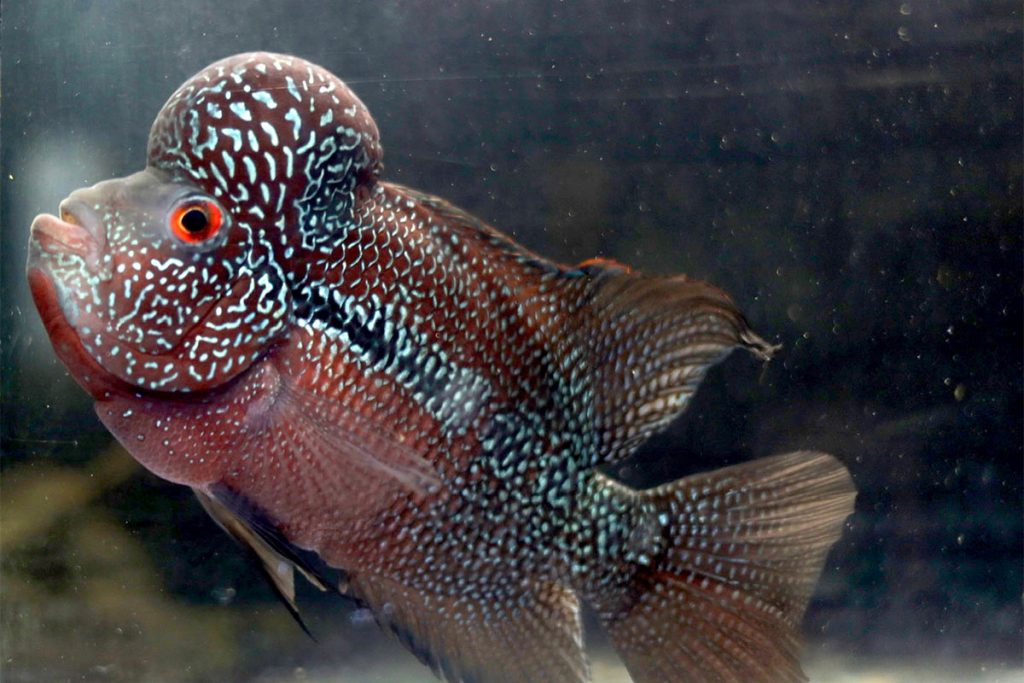Animal House: The serenity of the fishbowl: A deep dive on tropical fish-keeping

An aquarium of shimmering tropical fish could be one of the only tabletop item to instantly calm life’s chaos and provide escape from a difficult day, stressful thoughts and feelings just from looking at it. Aquariums induce relaxation and sensory enjoyment by gliding through lush, swaying emerald aquatic plants to the sounds of soothing water among decorative rocks or living coral.
Florida is the number one U.S. producer of aquarium fish and aquatic plants, according to the Florida Department of Agriculture & Consumer Services and while aquarium fish rank among the most popular U.S. pets — nearly one in eight households has an aquarium — fish-keeping is not a new hobby.
Encyclopedia Britannica reports archeological evidence of fish-keeping in artificial ponds in Mesopotamia 4,500 years ago and aquariums in 2500 BC. Fish-keeping purposes varied around the globe as well: Where the Egyptians considered fish sacred and worshiped the Nile perch, Chinese fish aquariums held dinner.
Fish-keeping appeals to all ages and offers much more budget flexibility than other pets. Silent tropical fish may also be the only pet possible in rentals due to limited space, pet restrictions, or where pet deposits and monthly fees are prohibitive.
Fish pets compactly bring the outdoors inside to those with limited mobility, the elderly or the disabled. They are perfect pets for those with allergies or compromised immune systems.
Some keepers say their fish can be trained and can provide non-physical interaction. Fish learn to approach owners for feedings and exhibit responses. They move within the aquarium, reacting to owners’ movements.
“The public would be surprised at how smart fish are and the behaviors they display,” said Dr. Cait Newport, Marie Curie Research Fellow at Oxford University Zoology Department. “Tropical fish can distinguish one human face from another despite lacking a brain section that homo sapiens and other ‘smart’ animals (primates) with large complex brains have. Fish lack the neocortex, the most recently evolved brain part that governs sensory perception and language.”
Dr. Sylvia Earle’s research also illustrated fish intelligence: Fish recognized each other, gathered information by eavesdropping, remembered past social interactions with other fish, and showed affection by rubbing. Fish are good-natured, curious, sensitive, have personalities, and express pain when wounded, Earle reported. Earle is an American marine biologist, leading deep-sea oceanographer, author and National Geographic Explorer-in-Residence.
In research conducted by the University of Bern, Switzerland, behavioral ecologists documented fish functioning in complex social systems: Fish helped each other, cooperated, demonstrated reciprocity, and communicated through low-frequency sounds to court other fish, show submission or signal danger.
Scientific research has also showed positive psychological, physical and emotional benefits of fish-keeping. Such research into the health benefits of human-animal interaction has traditionally focused on dogs; however, there is data regarding tropical fish-keeping in “The Effects of Interacting with Fish in Aquariums on Health and Well-being: A Systematic Review,” published by the National Institutes of Health.
The 19 research studies included in the report showed evidence of positive effects on mood, happiness, pain tolerance, nutritional intake and body weight from human interaction with tropical fish in private and public aquariums. This research was conducted in the U.S., U.K., Germany, France, Taiwan, and Australia.
When subjects watched tropical fish swim, researchers documented increased relaxation, lowered blood pressure and heart rate. The viewing diverted attention away from stressors or negative mental activity, including anxiety. It promoted rapid emotional and physiological recovery from stress. All studies reviewed for this article advised that more research into the benefits of fish-keeping is needed.
Aquarium requirements for fresh and saltwater fish differ but include the tank, cover, a stand or tabletop, lighting, filtration/aeration, specially treated water and aquatic tank chemicals for necessary pH, alkalinity and hardness. Other items include an air pump to move water and maintain oxygen and carbon dioxide levels. Gravel or other floor covers, a heater, net and food are required. Different fish species need specific gallons of water per fish, light and water temperature consistency to thrive in aquariums.
Maintaining optimal water quality in aquariums is a critical lesson for beginning fish keepers. The presence of oxygen and carbon dioxide in clean aquarium water sustains life in the tank. It depends upon many factors: tank size, water temperature, light and the presence of animals and living plants.
The ideal gas exchange cycle between aquarium fish and plants happens when fish ingest oxygen contained in water and secrete it as carbon dioxide back into the tank. If adequate light is present, aquatic plants thrive, photosynthesizing carbon dioxide into oxygen.
Moving water is better oxygenated than standing water, which only holds oxygen in the upper layers. Aeration and filtration devices and healthy aquatic plants add more oxygen. In a well-oxygenated tank, organic pollutants and compounds are oxidized and easily absorbed by fish and plants in a balanced, continuous cycle. Oxygen deficiency creates harmful toxins and an unpleasant smell. Regular cleaning is necessary.

Freshwater tanks can include living aquatic plants and decorative rocks or other objects. Saltwater aquariums can feature living coral. Both may include invertebrates and vertebrate tropical fish suitable for each type of water and environment.
With thousands of tropical fish to choose from, new fish-keepers should learn as much about fish species, the required care levels, and costs as possible. Generally, freshwater fish aquariums are less costly and more complex to set up and maintain than saltwater fish aquariums.
Bio Reef owner Eddie Miller said that saltwater aquariums’ biological and chemical requirements make them more difficult and expensive to maintain. He also said it is essential to know the size a fish will grow, its food and care needs, and its temperament towards other fish.
“We care about the fish and invertebrates we sell and want to ensure they will thrive and have what they need in their new home. They’re so intelligent, and the triggers grunt and chatter when annoyed or hungry,” Miller said.
By Julie Kerns Garmendia
Resident Community News







